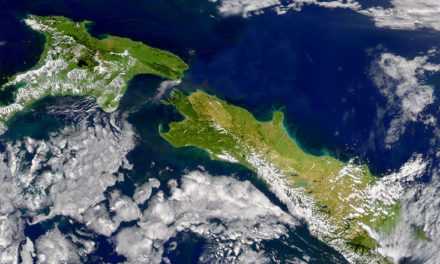Toxic Goodness
Nga mihi ki te hunga e whai ana i to rātou whainga… (Greetings to everyone who is pursuing their purpose),
This month’s whakataukī (proverb) is: “Te aroha, te whakapono, me te rangimarie, tatou tatou e” (Loving kindness, steadfast faith, and harmonious tranquility (peace) for us all).
Te Aroha is probably the single most popular waiata (song) performed at pōwhiri or mihi whakatau (customary welcome ceremonies), primarily because of its simplicity. Visitors, even those new to te ao Māori (the Māori world), can learn it in minutes. It is so common that it has become cliché, which is a pity because it is beautifully aspirational. Nevertheless, hosts welcoming people in accept it with a generous smile even as they long to hear something a bit more original from a group of visitors, something that more genuinely expresses the visitors’ kaupapa (life philosophy). For visiting believers, a chorus in Māori that expresses our loving unity in Christ would be a wonderful act of witness and well received by Māori hosts.
We could all use a bit of love, faith, and peace right now.
In a world being ripped apart before our very eyes, we could all use a bit of love, faith, and peace right now—positive aspiration or hope that we can hold on to as we walk through the valley of the shadow of death. When we are drawn away from the place of blessed tranquillity into that dark valley, Psalm 23 promises plenty in the midst of pain, honour when we are unfairly shamed, and blessed belonging instead of cursed exclusion. All platitudes aside, the follower of Jesus simply has to believe that indescribable good lay on the other side of suffering. Our redemption pays dividends at the resurrection (whether that manifests as growing maturity in this life or full renewal in the next).
That suffering can be redemptive sounds utterly perverse in the ears of our mainstream contemporaries. Our secular reality (and too much theology) is so thoroughly drenched in (false) Epicurean hope that it is unfathomable to think that anything bad can ultimately be good, steeped as Epicureanism is in the pursuit of pleasure. We must not fall into the trap that God intends evil so that good might result. That is perverse. God is good. But as Joseph said to the brothers that abused him, “You planned evil against me but God used those same plans for my good” (Genesis 50:20 MSG). God will not be outwitted by a serpent’s cunning. But we are. And we can be our own worst enemy.
I was recently invited to reflect on these things by the New Zealand Christians in Science community as they considered “The Fall in Science and Theology”. It was a delightful conference with a wide array of thinking about the Genesis narrative over against our lived experience. I was not present for the entire event but I think I may have been the only speaker to move beyond the Genesis 3 event and present something of an antidote. In addition to commenting that my rendition of the chorus of Born This Way was probably the first time Lady Gaga had ever been sung at a theology conference, my thank you card generously noted, “Finding a transcendent determination for what is good in Jesus is a hopeful vision for life”. I am glad the core point of my message was received.
At some point in human history we acquired the capacity to determine what is good and thereafter have been able use our agency to push it upon others.
The full transcript of my presentation Will To Knowledge: Exploring Sin as the Human Capacity to Judge can be accessed here. My central thesis is that at some point in human history we acquired the capacity to determine what is good and thereafter have been able use our agency to push it upon others. It gave us the capacity to judge. Should someone have a different understanding of what is good for them, which contravenes our understanding of good, then in its extreme we determine that to be evil. Welcome to the world after the fall. It matters little how it happened, the one thing everyone agreed on at the conference was that we experience its effects. I put forth that Sin (with a capital S) influences our capacity to decide and impose our idea of what is good such that it too often results in relationship-destroying behaviour, those things we consider to be lower case sins. This is as applicable for sibling rivalry or marriage dysfunction as it is for civil or international wars. It is all rooted in someone’s idea of good conflicting with someone else’s idea of good. Evil, then, is an extremely aberrant or perverse interpretation of ‘good’. Yet, miraculously, “God works all things together for good with those who love him, who are called according to his purpose” (N T Wright).
In his book Into The Heart of Romans, (and in previous works) N T Wright retranslates Romans 8:28 replacing “for” with “with”. It is a crucial missiological switch. According to Wright, Paul is not suggesting here that good is something God does for us in Christ (although we know from elsewhere that God certainly does), but rather that good is something we do with God as we co-create New Creation in step with the Spirit. Bringing all things into alignment with God’s good. All of creation is groaning as if with labour pains waiting for us to step up and manifest New Creation (otherwise known as the Kingdom of God). This is participation in the missio Dei (mission of God). But in order for us to fully function, to see God’s promises fulfilled and grand purposes achieved, we need to wrangle Sin. “Thank God!” Paul says, “The answer is in Jesus Christ our Lord.” (Romans 7:25)
It is the Spirit who then restrains our will to knowledge, mitigating Sin.
The Bible tells us that we need an external force to help mitigate the Sin-influenced “will to knowledge” capacity that we have. One of the many reasons Jesus died and rose again was so that he could legitimately provide us with that external assistance upon his ascension. This is the significance of the Third Person of the Trinity, the Holy Spirit. It is the Spirit who then restrains our will to knowledge, mitigating Sin. Our life thereafter can then be spent co-creating New Creation with one another, regardless of our backgrounds, as well as with creation itself. Where our concepts of the good life led us into all manner of relationship destroying attitudes and activities, we now follow the Spirit’s leading into God’s goodness, which enhances and strengthens relationships.
Just consider the lists in the epistles of the by-products or “fruit” of the Spirit, which are brought under a single category called love. Take a look sometime at Galatians 5:22, 1 Corinthians 13, or any other list of positive character traits that reflect the character of God. They are all relationship-enhancing attributes. Not one of them has much relevance apart from interpersonal relations. They are all counter-will to knowledge. They are embodied love, and I call activated love “will to mutuality”.
Will to mutuality is the norm of New Creation.
Will to mutuality is the norm of New Creation. It is complete submission to the rule of Christ and experiencing new life activated by Wairua Tapu, the Holy Spirit. It is a mutual yielding of our knowledge of what is good to the collective in-Christ, as members of one body. Contributing the best of what we have to offer as created in the image of God, but not imposing our perspective on others. Instead, having the attitude of Christ, we yield kenotically (cf. Philippians 2:5-11).
Jesus came to break our dependence on will to knowledge, and release our capacity for will to mutuality by the Spirit of God. What began in the garden of Eden, ended in the garden of Gethsemane, when He without Sin, but with much anguish, surrendered His “nevertheless” to God. “Nevertheless, not my will, but yours be done” (Matthew 26:39b). We now carry a responsibility to manifest God’s will in whatever context the Spirit of God leads us into. To co-create New Creation with whomever we find there that follows Jesus, for the benefit of everyone else including our habitats. For God’s purposes of love, faith, and peace will only be achieved if, like this, we #stayonmission.
Arohanui ki a koutou e haere ana ki te ao (love to you all as you go into the world),
Jay







